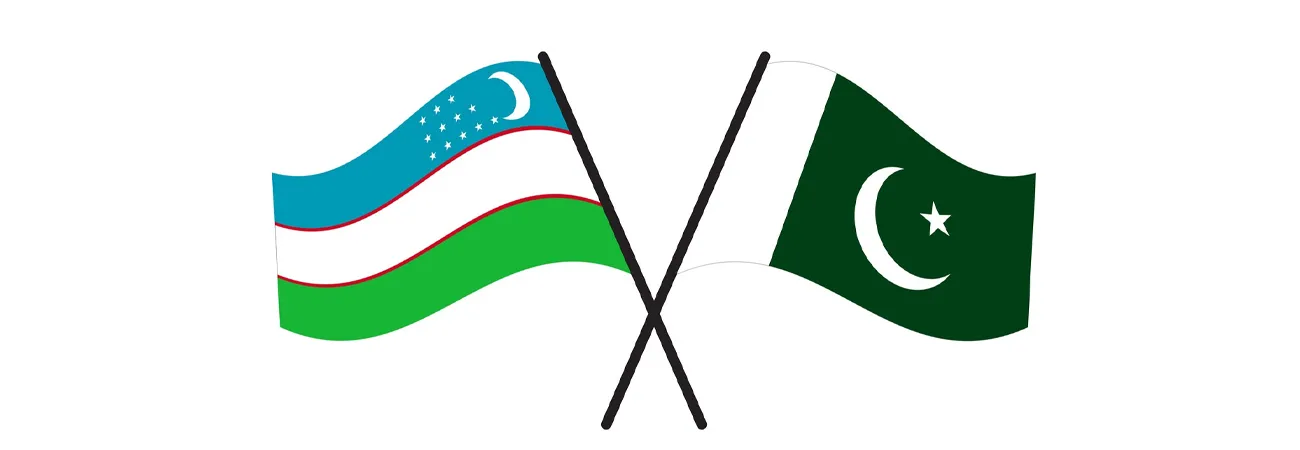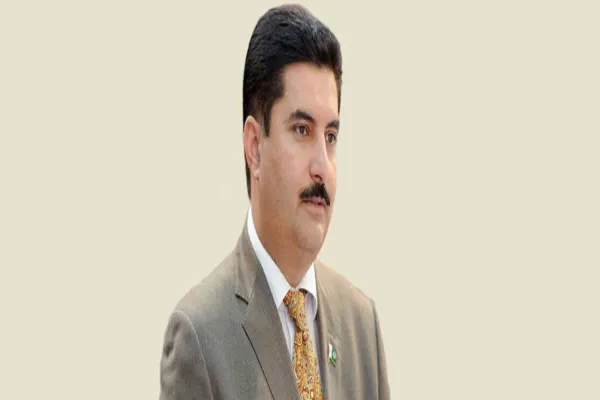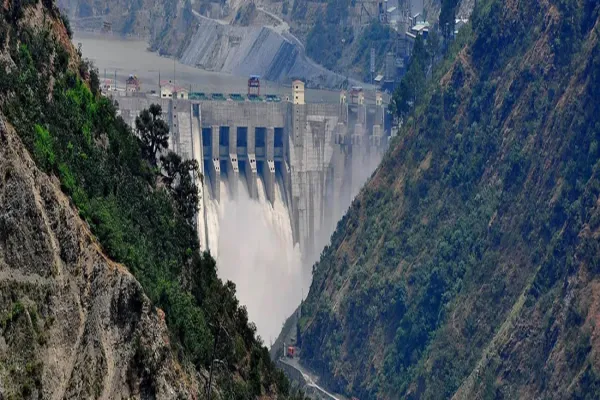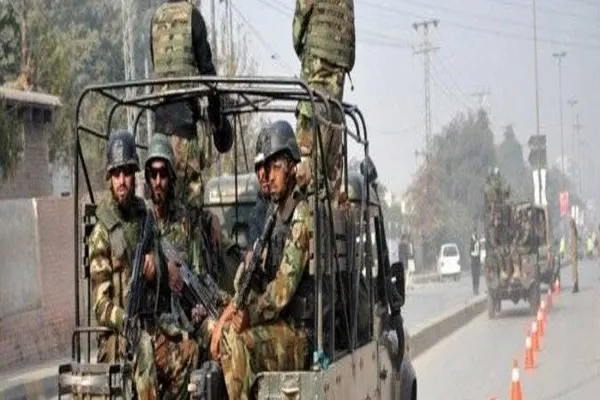i NEWS PAKISTAN
Pakistan and Uzbekistan relations are based on commonalities of religion, history and culture. For centuries, peoples of the two lands have enriched each other’s spiritual, intellectual, and cultural growth. Buddhist monks from monasteries in Taxila and Peshawar in Pakistan used to travel to Afghanistan and up north in Termez and beyond (now Uzbekistan). Similarly, the intellectual and spiritual wisdom emanating from Samarkand and Bukhara has enlightened the lives of the people living in lands of Pakistan provide a deep-rooted foundation between the two countries.

Utkir ALIMOV Deputy Editor-in-Chief of International Relations Department of the UZA
Mughal Dynasty, with its Central Asian roots further reinforced this foundation, leaving an imprint on the political, religious, and psychological orientation of the Muslims of South Asia. There are more than three thousand common words in Urdu and Uzbek languages. Therefore, the exchanges between the peoples of lands that are today Uzbekistan and Pakistan are much older and deeper than the emergence of two countries as sovereign states on the world map.
Pakistan was one of the first countries to recognize Uzbekistan after its independence in 1991 and establish diplomatic mission in Tashkent, thus giving a base to the bilateral relations characterized by mutual respect, political engagement, growing economic ties, and shared interests in regional stability and development. Both Pakistan and Uzbekistan are committed to further deepen the bilateral relations by enhancing trade, connectivity and people to people contact. Friendly relations between the peoples of Uzbekistan and Pakistan go back to the distant past.
Today, these ties are developing further, taking strength from historical roots. Zahiriddin Muhammad Babur and the Baburid dynasty, Muhammad Iqbal, MirzaGhalib, and other great thinkers and poets, immortal heritage, and enlightened views are a strong spiritual bridge connecting our peoples. Therefore, there is an increasing interest in the history, culture, and art of Pakistan in Uzbekistan, particularly in studying the Urdu language. In turn, Pakistan also pays great attention to projects aimed at studying and researching the Uzbek language, literature, and our country’s history.
In particular, “Babur Heritage Center” was opened at the University of Punjab, and “AlisherNavoi Center” for studying Uzbek language and culture was opened at the University of Peshawar. In recent years, the development of cultural-humanitarian relations, joint study of our common spiritual heritage, and development of cooperation in the fields of science, education, culture, and sports have been achieved. It should also be noted that interest in Pakistan’s rich history and culture is also growing in Uzbekistan.
For example, the life and creative heritage of MirzaGhalib, the great poet of the East, and the great thinker who founded the literary language Urdu, is studied in depth. Today there are about 10 million members of the Naqshbanditariqah in Pakistan and many admirers of Zahiriddin Muhammad Babur. All conditions have been created for them to make pilgrimages to Bukhara, Samarkand, and Andijan holy places.
The filming of a film about our ancestor Babur has started in cooperation with the filmmakers of the two countries. Strengthening cooperation in the field of medical education to protect human health will be beneficial for our nations. At this point, we are pleased that over the past three years, among Pakistani youth, there has been an increased interest in studying in medical universities of Uzbekistan.
More than 750 Pakistani youth are currently studying in this specialization in our country. The traditional friendship and multi-vector practical cooperation between Uzbekistan and Pakistan are getting stronger, and the reforms of both countries on the way to development are consistent and similar. The Cultural Exchange Program for 2021-2026 and the Memorandum of Understanding between the University of World Economy and Diplomacy and the Foreign Service Academy will undoubtedly help raise our countries’ cooperation to a new, higher level.
As a continuation of the traditions of friendship and cooperation between the two countries, several activities are being carried out by the Center for Public Diplomacy of the Shanghai Cooperation Organization in Uzbekistan. On June 9, 2021, on the 29th anniversary of establishing diplomatic relations between Uzbekistan and Pakistan, the Center held an online meeting of experts on the topic “Prospects of cooperation between Uzbekistan and Pakistan within the framework of the Shanghai Cooperation Organization.”
On July 12, 2021, on the eve of the official visit of the Prime Minister of Pakistan Imran Khan to Uzbekistan, an international roundtable on the topic “Uzbekistan-Pakistan: current state and prospects of regional interdependence” were organized in cooperation with the Tashkent State University of Oriental Studies. On February 5, 2021, a video interview was held with FarhatAsif, President of the Institute of Peace and Diplomatic Studies in Pakistan. After the meeting, a memorandum of cooperation was signed between the Center and the Institute of Peace and Diplomatic Studies.
As part of the Memorandum, an agreement was reached to hold a number of events related to the centuries old cultural, trade, economic, and most importantly, sincere friendly relations between Uzbekistan and Pakistan on the eve of the 30th anniversary of the establishment of diplomatic relations and the Independence Day of the Republic of Pakistan. On March 2, 2021, the newspaper “Daily Times Pakistan” published an article entitled “Uzbekistan is a member of the UN Human Rights Council” by Muhammad Asif Noor, a partner of the SCO Center for Public Diplomacy in Uzbekistan, director of the Institute of Peace and Diplomatic Studies.
The article focuses on the speech of the President of the Republic of Uzbekistan ShavkatMirziyoyev, at the 46th session of the UN Human Rights Council on February 22, 2021. On November 8, 2021, the head of the cultural and humanitarian relations department of the Center F. Otbasarov’s article “Muhammad Iqbal – Teacher of the Enlightened People of the East and Islamic World” was published in “Global News Pakistan”, one of the largest newspapers of Pakistan.
Promoting the rich history and cultural heritage of Uzbekistan and Pakistan, as well as the ancient philosophy, helping to establish tolerance and mutual respect among peoples are among the goals and tasks of the Center. The future work plan of the center includes getting acquainted with the music and architectural heritage of the SCO countries, including Pakistan, as well as conducting large-scale events with partners in the fields of education, science, sports, etc.
In conclusion, it can be said that the further expansion of cultural and humanitarian relations between our countries, and the establishment of friendly relations in the field of public diplomacy, are a clear expression of the sincere attitude of our people to each other, mutual respect, and attention. At last, it is necessary to remark that Pakistan is the shortest, easiest, and most economical connectivity route to the Arabian Sea for Central Asian states and specifically for Uzbekistan. Pakistan is willing to help facilitate Central Asian states to engage in trade via its sea routes.
Uzbekistan and Pakistan can engage in several cooperation fields like trade, tourism, education, health, and energy projects. Moreover, Pakistan’s renewed focus is geo-economics, strengthening Pakistan- Uzbekistan relations. However, peace in the region, particularly Afghanistan, is essential for any trade, investment, and connectivity initiative. Similarly, the Chinese Belt and Road Initiative will further bring both countries close to each other as it has to connect Pakistan with Central Asia and beyond.
Credit: Independent News Pakistan (INP)









